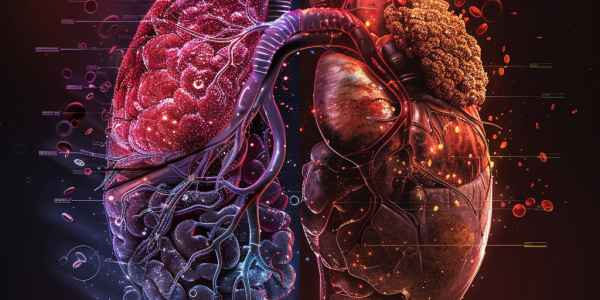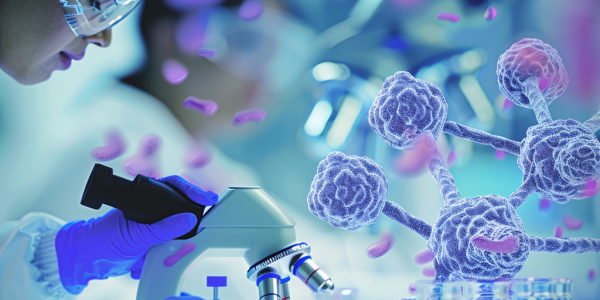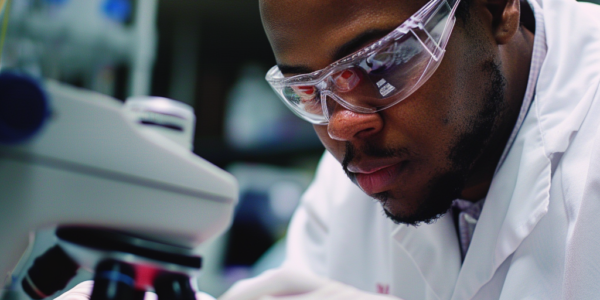Surge in Respiratory Illnesses Linked to Easing COVID-19 Measures
A recent study in New Zealand reveals a concerning rise in respiratory illnesses like RSV and Group A Streptococcus, linked to declining immunity post-COVID-19. As pandemic restrictions eased, researchers found a significant decrease in protective antibodies against these pathogens, raising alarms for public health as winter approaches. Experts urge vigilance and emphasize the need for balanced health strategies to combat the resurgence of these infections.
Groundbreaking Study Maps Aging Mechanisms Across Organs
A groundbreaking study published in *Cell* reveals critical insights into aging mechanisms through spatial transcriptomic mapping of nine organs in male mice. Researchers from the Chinese Academy of Sciences identified universal aging indicators, highlighting the role of senescence-sensitive spots in tissue deterioration. This pioneering research could pave the way for innovative strategies to delay aging and combat age-related diseases.
Navigating Privacy Choices and Vaccine Efficacy in the Digital Age
In the digital age, understanding cookie consent and data privacy is essential for users. This article explores the implications of essential and optional cookies, emphasizing user control over personal data. Additionally, it highlights recent research on the RTS,S/AS01E malaria vaccine’s booster dose, revealing significant immune responses and their impact on malaria risk among infants and children in Africa.
Breakthrough Biologic Drug Targets Mutant HER2 Protein for Cancer Treatment
A groundbreaking study from NYU Langone Health has developed a new biologic drug targeting mutant HER2 proteins, promising effective cancer treatments with minimal side effects. This targeted therapy represents a significant advancement in oncology, paving the way for personalized medicine and improved patient outcomes.
Study Reveals Autoantibodies’ Role in Susceptibility to Viral Infections
A groundbreaking study from the University of Zurich reveals that about 2% of the population develops autoantibodies against type 1 interferons, heightening the risk of severe viral infections like COVID-19. These autoantibodies impair the immune response, making individuals more susceptible to viral diseases. The research emphasizes the need for further exploration into immune system complexities and potential therapeutic strategies to enhance defenses against viral infections.
New Antibody Fragment Shows Promise in Treating Rare Form of Amyloidosis
Researchers have identified a potential treatment for light chain amyloidosis, offering hope to patients with this rare condition. The antibody fragment discovered could improve prognosis and lead to advancements in treating amyloid-related diseases like Alzheimer’s.
New Study Targets Microglia to Fight Alzheimer’s Disease
Researchers at Washington University School of Medicine are focusing on mobilizing microglia, the brain’s immune cells, in the fight against Alzheimer’s disease. Dr. Marco Colonna’s study explores targeting a receptor on microglia to combat harmful amyloid plaques. By developing an antibody to block the receptor, the team reduced plaque formation in animal models. This research opens new possibilities for Alzheimer’s drug development beyond current FDA-approved medications.
University of Washington Researchers Develop AI Program to Design Atomically Accurate Antibodies
University of Washington researchers have developed a generative AI program capable of designing atomically accurate antibodies, revolutionizing antibody generation and offering faster, more efficient alternatives. The AI program has shown success in creating antibodies for bacterial toxins, COVID-19, respiratory syncytial virus, and influenza, promising to accelerate the production of antibodies crucial in fighting infectious diseases. This breakthrough in AI-powered antibody design holds great promise for the future of therapeutic development and disease treatment.
Study Reveals Immune Response to Initial Surge of SARS-CoV-2 and Early Variants
A recent study by the University of Washington School of Medicine reveals the immune response to the initial surge of the SARS-CoV-2 virus and its early variants. The study found that vaccinated individuals exhibited a remarkable imprinting response to COVID-19, preparing antibodies and memory cells for future encounters with the virus. The findings provide valuable insights into the immune response to COVID-19 and the potential impact of repeated vaccine exposures on shaping future immune responses to the virus.
HI-Bio™ Receives Orphan Drug Designation for Felzartamab Targeted Therapy
HI-Bio™ has received Orphan Drug Designation from the FDA for felzartamab, a targeted therapy for antibody-mediated rejection in kidney transplant recipients. This designation is a significant milestone in addressing the critical unmet medical need for AMR, with potential breakthrough implications. The Orphan Drug Designation qualifies HI-Bio for certain development incentives, expected to accelerate the development of felzartamab and enhance the company’s ability to bring this innovative therapy to patients in need.










